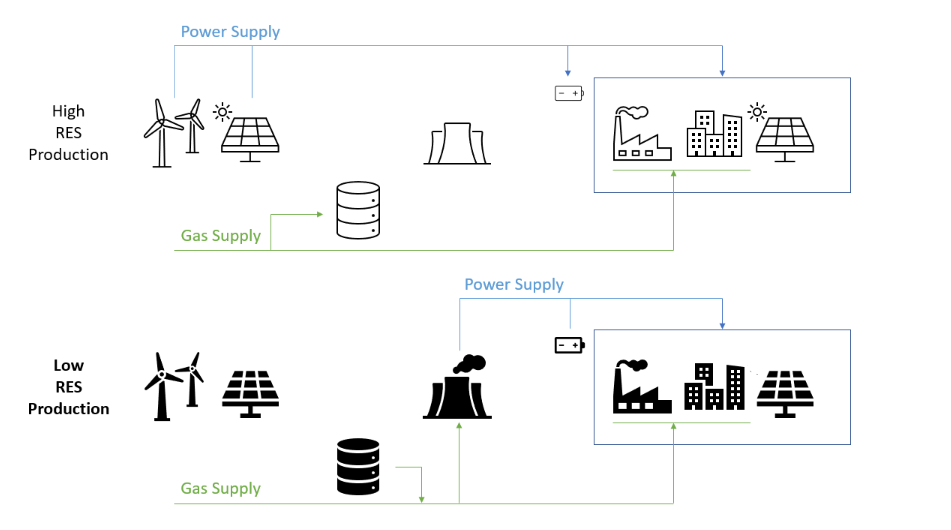The need for flexibility: why energy storage is key
This month, in our series EnergySpotlight our CEO Catherine Gras talks about the future of energy storage.
The need for flexibility: why energy storage is key and will grow in importance in the future
In the energy sector, when we talk about flexibility, we mean the capacity to increase or reduce the amount of energy at a given time.
It can take different forms, it can mean producing more or less, consuming more or less energy or releasing or storing energy when it can be stored.
If the production of energy was equal to the consumption, there would be no need for such flexibility, but as soon as demand and supply differ in time, there is a need to adjust one or the other. Adjusting demand is not easy and adjusting production is becoming more challenging as we are turning to more renewable energy production. This is where storage is key.
For decades, our energy system has been based on predictable production facilities, on predictable sources of energy. Electricity was mostly produced close to the point of use using coal, nuclear, gas or fuel-oil and heat was mostly produced from gas. The largest uncertainty of such a system was on the demand side.
As an example, heating is dependent on outside temperature when winter needs go significantly above warm season needs. Large scale underground storages were built for that purpose and are still used to manage this demand uncertainty.
But for some time already, the need for storage has increased to cover a growing uncertainty on the production side.
In most countries in Europe, the increase of renewable intermittent energy – where the resources are available and further away from the point of use – goes together with the closure of coal and fuel power plants. This significant shift in the way we produce electricity has created a strong demand for flexible gas power plants and the development of power transmission capacities. The flexibility required by the electricity market is thus more and more provided by the gas system.
Storage is also useful to reduce the energy supply chain costs as production and transportation facilities do not need to be sized for high peak demand. This is true for natural gas and this will be true as well for hydrogen production and supply.
The more we progress in decarbonizing our economy, the more we need energy storage. Given the limited large-scale storage alternatives, we see a growing need for underground gas storage, in the form of natural gas or hydrogen.

Impact of production and consumption flexibility requirements on gas and power system operations

